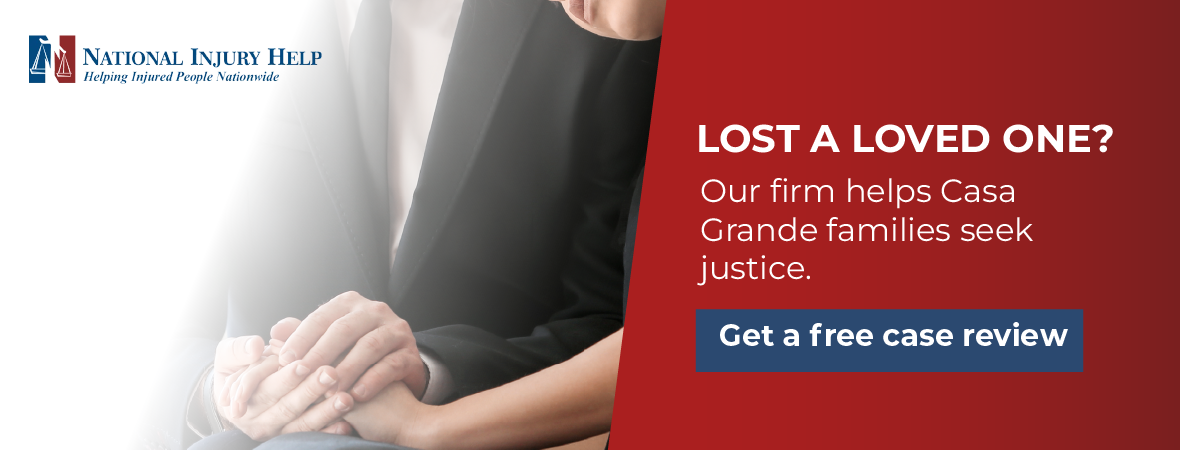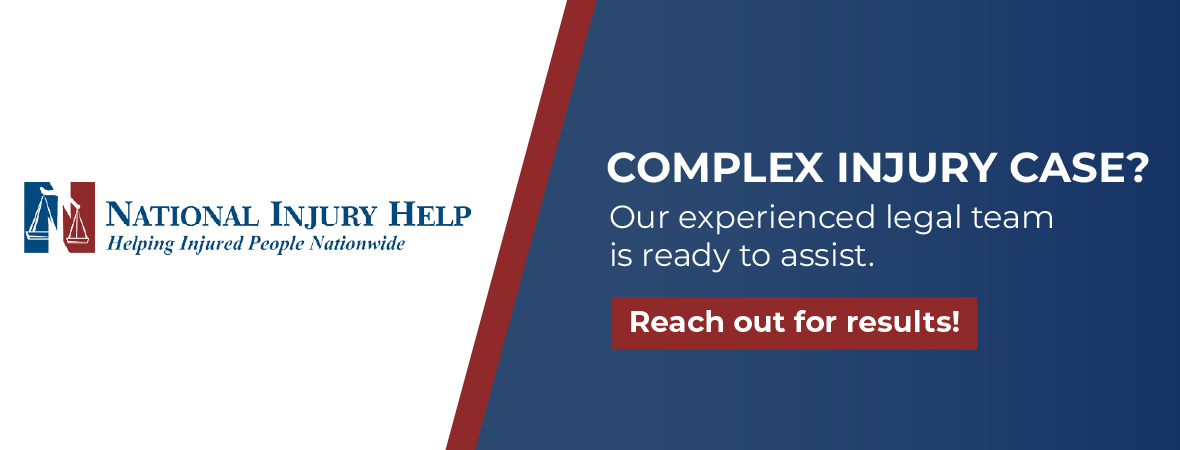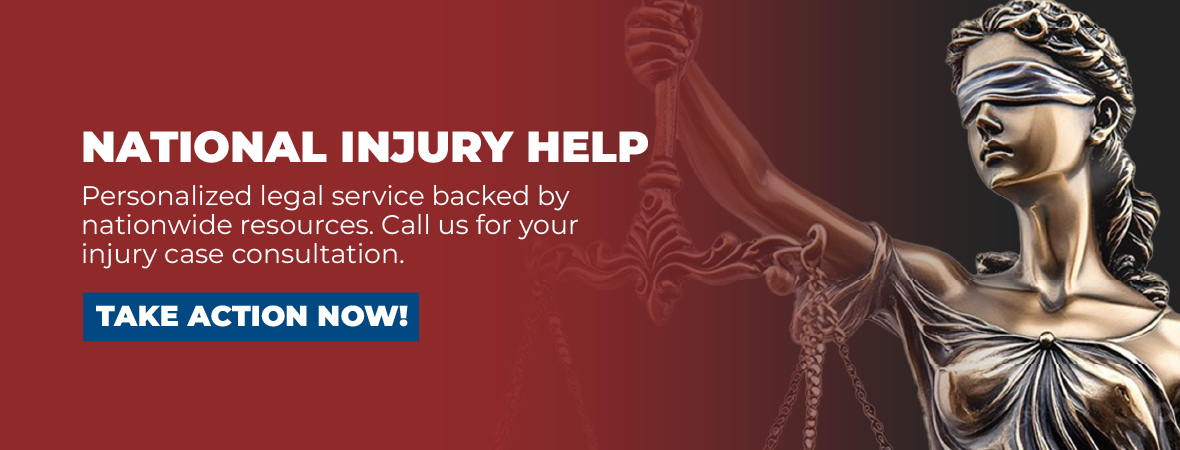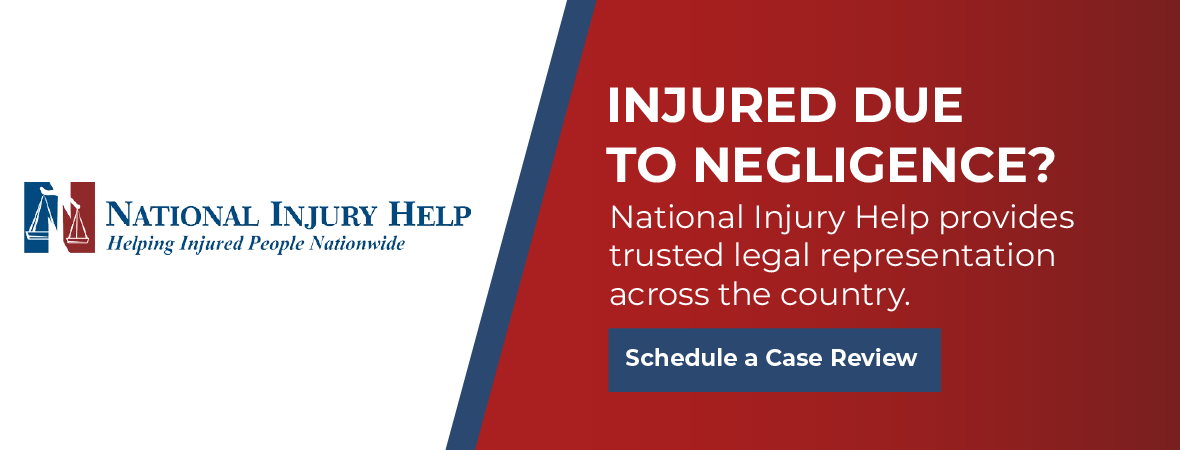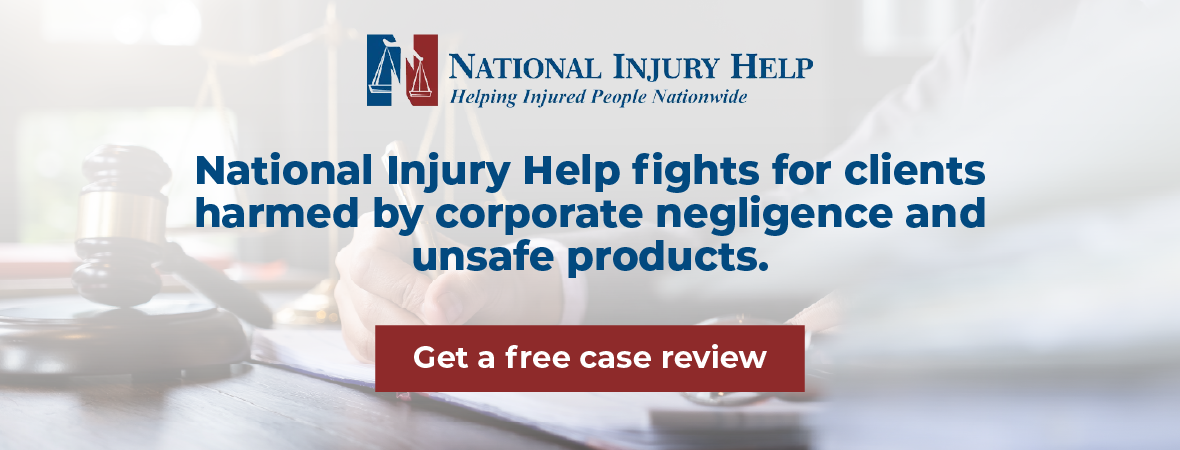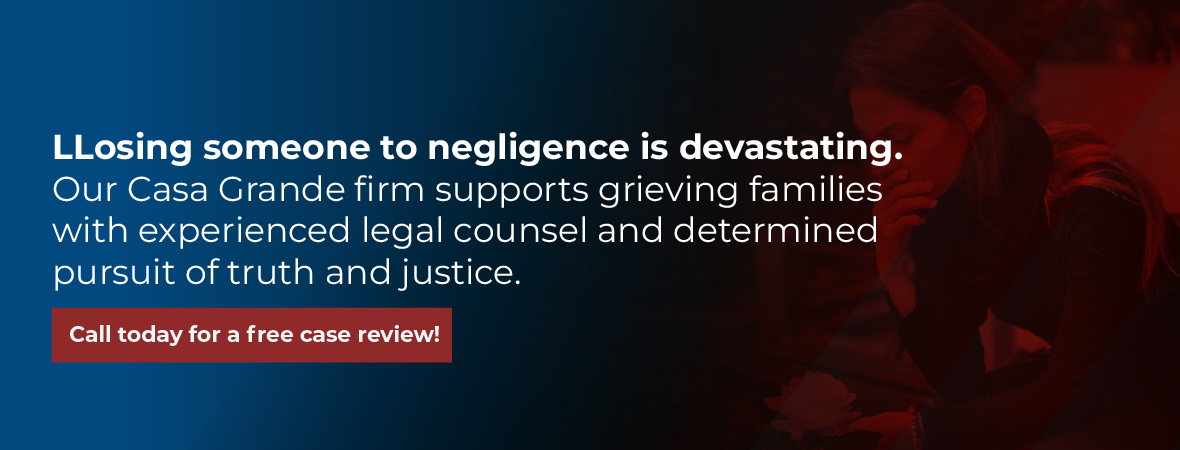Losing a loved one because of someone else’s actions is heartbreaking. Contact National Injury Help today by calling 1 (800) 214-1010. We are here to help your family seek justice and the financial support you deserve.
The late-night phone call or the unexpected knock on the door arrives without warning. A police officer or emergency physician explains that a spouse, parent, or child has died in an accident that never should have happened. Grief rushes in first, then confusion and anger follow because another person’s careless choice stole a life that mattered.
As funeral plans begin, bills also arrive: hospital invoices, mortuary charges, and mortgage payments that will soon come due without the deceased wage earner’s help. No amount of money can restore the rhythm of family dinners or quiet weekend conversations, yet Arizona law recognizes that survivors should not bear every financial and emotional cost when someone else caused the loss. A wrongful death lawsuit in Arizona is the civil path to accountability, providing resources for today’s expenses and security for years to come.
Families in Casa Grande face unique challenges after a fatal crash on Interstate 10, a workplace mishap at an industrial site near Cottonwood Lane, or a medical error at a local hospital. State statutes define who may seek damages, what deadlines apply, and how courts measure the full impact of a life cut short. A local wrongful death attorney guides families through these rules, gathers evidence before it disappears, and negotiates with insurers that prefer quick, low settlements.
What Is Wrongful Death Under Arizona Law?
Arizona Revised Statutes section 12-611 states that a wrongful death occurs when a person dies because of the wrongful act, neglect, or default of another. In simpler terms, any death caused by someone else’s careless or intentional behavior can give rise to a civil claim.
The standard mirrors personal-injury law; the key difference is that the injured person can no longer bring the lawsuit, so close relatives or the estate step in to seek compensation for the losses that flow from the death.
Difference Between Wrongful Death and Criminal Charges
A criminal prosecution aims to punish the offender through jail time, probation, or fines payable to the state. A wrongful death action is a civil case that focuses on the survivors’ losses. The two proceedings can run at the same time or entirely separately.
A driver may face no criminal charges after a fatal collision, yet still owe damages in civil court because the standard of proof is lower in civil cases.
Time Limit to File
Arizona families generally have two years from the date of death to file a wrongful death lawsuit. Courts may pause that clock in rare circumstances, such as when the defendant hides evidence, but relying on exceptions is risky.
Shorter deadlines apply if a government agency contributed to the death, because families must send a formal notice of claim within one hundred eighty days. Acting quickly preserves rights and helps gather witness statements while memories remain fresh.
Types of Incidents That Qualify
Many events fall under the wrongful death statute. Car or truck collisions on Florence Boulevard, medical mistakes such as a missed diagnosis, defective consumer products that explode or fail at a critical moment, workplace accidents involving heavy machinery, poorly maintained premises that collapse, dog attacks that cause fatal infections, and intentional assaults can all support claims. The unifying factor is another party’s fault.
Who Can File a Wrongful Death Claim in Casa Grande?
The first thing to do before filing a wrongful death claim is to determine your eligibility.
Legal Beneficiaries in Arizona
State law prioritizes immediate family. The surviving spouse has first standing, followed by the deceased person’s children and parents.
If the victim was a child, either parent may file. When more than one of these relatives exists, they usually join together under a single lawsuit so the court can award damages in one action rather than multiple scattered cases.
Role of the Personal Representative
If no spouse, child, or parent survives, the personal representative of the estate may bring the claim. This individual, often named in a will or appointed by the probate court, pursues damages for the benefit of other heirs such as siblings, grandparents, or more distant relatives even when immediate family members file, the personal representative can still join the case to recover costs the estate itself has borne, such as final medical bills.
Multiple Claims Consolidated
Arizona courts encourage consolidation to avoid conflicting judgments. If two eligible relatives try to file separately, the judge will usually merge the cases or appoint one representative. Families often choose a single plaintiff at the outset to streamline the process. Our firm helps relatives decide who should serve in that role based on availability, willingness, and personal capacity to manage legal decisions.
Common Causes of Wrongful Death in Casa Grande
Let’s take a look at some of the most common causes of wrongful death in Casa Grande.
Car and Truck Accidents
Interstate 10 cuts across Pinal County and sees heavy commercial traffic. A fatigued long-haul driver drifts over the center line, or a speeding commuter fails to slow for congestion.
High-speed impacts eject passengers, and cargo loads can crush smaller vehicles. Wrong-way drivers on rural highways and distracted drivers scrolling through phones on Florence Boulevard create additional risk.
Motorcycle or Pedestrian Crashes
Riders and walkers have little protection against even low-speed collisions. Intersections without protected left-turn arrows become danger zones when drivers misjudge a motorcycle’s distance.
Pedestrians on Trekell Road face wide lanes and fast acceleration from stop lights. Nighttime visibility issues contribute to tragic outcomes, especially if street lights malfunction.
Workplace and Construction Accidents
Casa Grande’s growing warehouse and construction sectors require forklifts, scaffolds, and heavy machinery. Falls from heights, crushed limbs under pallets, and electrocutions during wiring projects can all prove fatal.
When employers skimp on safety training or fail to maintain equipment, families may sue beyond worker-compensation benefits, especially if a third-party supplier or subcontractor played a role.
Medical Malpractice
A misread X-ray leads to untreated internal bleeding. A surgeon operates on the wrong site. A nurse administers a fatal dosage of medication. Hospitals in Pinal County carry malpractice insurance, but proving negligence demands expert testimony and meticulous record review.
Defective Products or Premises Liability
Brake systems that fail on farm trucks, consumer electronics that catch fire, and balconies that collapse under normal use all generate wrongful death actions. Dog attacks, though less common, can also be fatal, particularly when the victim is elderly or very young. Property owners must guard against foreseeable dangers; when they do not, they face civil liability.
What Compensation Can Be Recovered?
When a loved one dies because of someone else’s negligence, the emotional toll is enormous. At the same time, the financial impact can feel just as overwhelming. Many families are left with urgent questions: How will we pay for the funeral? What happens to our household income? Who will care for the children? A wrongful death lawsuit can provide answers in the form of compensation.
While no amount of money can bring your loved one back, compensation helps restore stability and gives your family the resources needed to move forward.
Economic Damages
Economic damages represent the financial losses caused by the death. These are costs you can calculate with receipts, bills, pay stubs, and expert estimates. In a wrongful death case, these losses can be substantial.
Funeral and Burial Costs
The first costs most families face are related to the funeral and burial. These expenses arrive quickly, often just days after the death. A funeral with transportation, flowers, a casket, and burial services can easily cost between $8,000 and $15,000.
Cremation services may cost slightly less, but still carry a significant financial burden. These costs are recoverable in a wrongful death claim.
Final Medical Bills
If your loved one received emergency care, surgery, or hospital treatment before passing away, the final medical bills may be overwhelming. A stay in the intensive care unit, for example, can result in tens of thousands of dollars in hospital charges. These expenses include:
- Ambulance services
- Emergency room care
- ICU stays
- Surgeries and medications
- Diagnostic tests such as MRIs or CT scans
These medical costs are fully recoverable as part of the total damages.
Lost Income and Future Earnings
When someone dies, their ability to earn income also disappears. This is not just about the next paycheck; it includes the full value of what that person would have earned over a lifetime. Calculations consider the person’s age, current income, work history, and career path.
For example:
- A 35-year-old nurse earning $60,000 per year could have worked another 30 years, totaling nearly $2 million in future earnings.
- A 50-year-old electrician might have ten more years of work ahead, along with pension and retirement benefits.
Future raises, bonuses, promotions, and retirement contributions can also be included in the compensation. If the deceased was the main breadwinner, these calculations become especially critical to the surviving family.
Household Services
Sometimes, the deceased did not work outside the home but contributed in other vital ways. A stay-at-home parent may not have brought home a paycheck, but they provided childcare, cooking, cleaning, transportation, and household management. These contributions have value, and courts recognize that replacing those services with paid help creates new financial burdens.
In these cases, we can calculate the cost of hiring a nanny, tutor, housekeeper, or caregiver to replace the services the deceased once provided.
Non-Economic Damages
While economic damages focus on money lost, non-economic damages focus on emotional pain and the deep, human losses caused by the death. These losses are harder to measure but just as real. They recognize the ways your loved one’s absence has changed your life forever.
Grief and Emotional Distress
Grieving takes time, and it affects everyone differently. A spouse may struggle with loneliness and depression. Children may face confusion, anxiety, or behavioral problems after losing a parent. Parents may carry lifelong sorrow after losing a child. Non-economic damages allow you to recover damages for this pain.
Loss of Companionship
A spouse who loses their partner also loses daily comfort, shared responsibilities, emotional intimacy, and the deep companionship of marriage. Courts understand that death affects every part of life, from raising children to paying bills to navigating everyday challenges. Compensation for loss of companionship aims to honor that bond.
Loss of Parental Guidance or Nurture
Children suffer not only financially but also emotionally when a parent dies. They lose a teacher, a role model, and a steady source of love and support. Courts recognize this emotional loss and may award compensation for the guidance, affection, and mentorship that the deceased would have provided.
No Cap on Non-Economic Damages in Arizona
In Arizona, there is no limit on the amount you can recover for non-economic damages in a wrongful death case. This means that juries can consider the full weight of your loss and award an amount that reflects the true emotional toll.
Our job is to tell the full story of who your loved one was. We work with your family to describe their role, their personality, and the void their death left behind. This story becomes a powerful part of your legal claim.
Punitive Damages
Punitive damages are not based on your loss. Instead, they are meant to punish the person or company that caused the death. These damages apply when the behavior behind the death was especially dangerous or reckless.
Examples of situations where punitive damages might apply include:
- A driver who was heavily intoxicated and speeding through a school zone
- A company that knowingly sold a dangerous product without warning
- A hospital that ignored multiple safety complaints about a negligent employee
- A trucking company that forced drivers to break safety rules and exceed legal driving hours
Punitive damages are less common than economic or non-economic damages, but when they are awarded, they often involve large amounts of money. The goal is to send a strong message that such behavior will not be tolerated.
How Arizona Calculates Damages
In Arizona, juries consider several factors when deciding how much compensation to award. These factors help ensure that each family receives an amount that fits their unique loss.
The court may look at:
- The age and health of the deceased at the time of death
- The person’s career, job skills, and work experience
- The person’s earning history and projected future income
- The relationship between the deceased and each claimant
- The number of dependents who relied on the person for care or financial support
Economists can help translate these elements into financial projections. Life-care planners provide insight into the future expenses the family will face, such as hiring caregivers, paying for school, or covering ongoing therapy. These expert evaluations add credibility and depth to the case.
At National Injury Help, we take the time to gather all the right records, tax returns, pay stubs, medical bills, and testimony from financial experts. We paint a clear, honest picture of what your family has lost, both in dollars and in daily life.
How a Casa Grande Wrongful Death Attorney Helps
When a loved one dies suddenly due to someone else’s negligence, the pain is overwhelming. While no legal case can bring them back, a wrongful death claim can provide accountability, financial stability, and peace of mind during a time of deep sorrow. Still, navigating a legal case while grieving is more than most families can handle on their own.
That’s where we come in. A skilled wrongful death attorney does more than fill out paperwork. We act as your guide, your shield, and your advocate from start to finish.
We Investigate the Death Thoroughly
Solid evidence is the foundation of any wrongful death claim. We begin our work by collecting as much information as possible about how your loved one passed away. Our investigations are wide-reaching and fast-paced because time is critical and details fade quickly.
We gather:
- Police and accident reports
- Autopsy findings and death certificates
- Medical charts, including hospital logs, progress notes, and prescriptions
- Surveillance footage from businesses, traffic cameras, or private residences
- 911 transcripts and paramedic records
- Employee training manuals or internal company emails, if the death occurred at a workplace or facility
We also speak with eyewitnesses and record their memories before time blurs the details. In traffic accidents, we bring in accident reconstruction experts to examine skid marks, vehicle damage, traffic signal timing, and GPS or black-box data.
In medical malpractice cases, we consult board-certified specialists who evaluate whether the care provided met the appropriate standard based on today’s accepted medical practices.
This deep-dive investigation often uncovers facts that families were never told. It also gives us the power to hold all responsible parties accountable.
We Identify All Liable Parties
In wrongful death cases, responsibility rarely rests on one person alone. Our job is to identify every party that may have contributed to the loss, because doing so increases the chances of a successful and fair financial recovery.
Here are a few examples of how multiple parties may be involved:
- In a fatal car accident, the at-fault driver may be only the start. The employer who forced that driver to work overtime or the company that failed to service a brake system could also bear responsibility.
- In a medical setting, a doctor’s error may be linked to a nurse’s missed vital signs, a pharmacist’s wrong dose, or an administrator’s poor staffing decisions.
- In a construction site accident, liability might extend to a subcontractor, equipment rental company, or general contractor who failed to enforce safety protocols.
Every responsible party often has their own insurance policy or legal defense team. By naming all potential defendants, we increase the available insurance coverage, giving your family the best possible chance to recover what you need for funeral costs, lost income, therapy, and more.
We Handle All Legal Procedures and Communications
When you’re grieving, even answering a simple email can feel exhausting. That’s why we take over all the communication with insurers, hospitals, employers, and attorneys.
We:
- Notify insurance companies that we represent you
- Gather insurance policy disclosures and identify coverage limits
- Communicate with opposing attorneys, adjusters, and court staff
- Handle deadlines for probate court, which often must be involved in naming a legal representative of the estate
In Arizona, opening a probate case is usually required even if the estate is small. This allows a family member to be appointed as the personal representative, giving them legal authority to file the wrongful death claim. We handle this part too, so you’re not stuck sorting out legal forms while planning a funeral or supporting grieving children.
We Prepare for Trial if Necessary
Most wrongful death claims end in a negotiated settlement. However, we always prepare each case as if it might go to trial. This approach ensures that we are ready, and it sends a powerful message to the other side: if they do not make a fair offer, we are willing and able to take the case in front of a jury.
Our trial preparation includes:
- Filing the lawsuit in the Pinal County Superior Court or the correct jurisdiction
- Exchanging documents and expert reports during discovery
- Taking sworn depositions of witnesses, doctors, first responders, and corporate employees
- Preparing visual exhibits to explain complex medical or technical facts
- Hiring economists and vocational experts to calculate future income losses and caregiving costs
Trial readiness often motivates the defense to settle, especially when they see we are organized, well-resourced, and serious about winning justice for your family. But if no reasonable offer is made, we go to court and present your case clearly, powerfully, and with compassion.
We Work on a Contingency Basis
Hiring a lawyer may sound expensive, but wrongful death attorneys work differently from many other types of legal professionals.
You pay nothing upfront.
We handle your case on a contingency fee basis, which means:
- We cover all case expenses as they arise, including filing fees, medical records, expert reports, and court costs
- You do not owe us anything unless we recover money for you
- If we win, our fee is a percentage of the final recovery, agreed upon in advance
- If we do not win, you owe nothing in attorney fees
This arrangement gives you peace of mind. It allows you to pursue justice without financial risk, and it ensures we’re just as invested in the outcome as you are.
What to Expect During a Wrongful Death Claim
A wrongful death claim gives families a path to seek justice, not just emotionally, but financially. But how does this process actually unfold? What can you expect at each step? While no two cases are exactly alike, most wrongful death claims follow a general structure.
Initial Consultation and Case Review
Everything begins with a conversation.
At your first meeting with our legal team, we listen fully and without judgment. This is your time to tell your story. You don’t need to bring everything, but any documentation you already have helps us get a head start. These may include:
- Police or accident reports
- Hospital or medical records
- Obituary or death certificate
- Any correspondence with insurance companies
We review these documents to start forming a picture of what happened and who may be held legally responsible.
We’ll also explain who can file the wrongful death claim. In most states, a close family member or the representative of the deceased’s estate can bring the case. If you’re unsure who that might be, we’ll help you sort it out.
Finally, we outline immediate action steps. That might include preserving key evidence, sending letters to stop the destruction of digital records, or notifying insurers that a claim is underway.
Investigation Phase
This stage is where legal strategy starts to take shape.
Our team digs deep to uncover the full story behind your loved one’s death. This may involve:
- Visiting the scene of the incident to take photos or measurements
- Interviewing eyewitnesses or co-workers
- Hiring expert consultants to evaluate mechanical failures, medical care, or safety procedures
- Issuing subpoenas for phone records, surveillance footage, or internal documents
For example, in a medical malpractice case, we might review hospital staffing schedules and call logs to check if a nurse shortage played a role. In a car accident case, we might demand a trucking company’s maintenance history or a distracted driver’s phone records.
Every piece of evidence gets analyzed for two things: who is at fault and what the true impact on your family is, financially and emotionally.
This phase often takes several weeks or months, but it lays the foundation for every step that follows.
Negotiation with Insurance or the Defendant
Once we have the evidence in hand, we craft a formal demand letter to the opposing party, usually an insurance company or corporate defendant. This letter outlines:
- Who we believe is legally responsible
- The full extent of the damages: medical bills, lost wages, pain and suffering, funeral costs, and loss of companionship
- The dollar amount we believe fairly reflects those losses
Insurers may reply with an initial offer. This is rarely their best number. Our job is to evaluate it with you and push back if it falls short. That might mean:
- Sending updated medical bills
- Providing expert calculations for lost future earnings
- Submitting witness statements or therapy records that highlight emotional suffering
Many wrongful death cases resolve at this stage, quietly, privately, and without going to court. If the offer is fair, meaning aligned with your interests and the suffered damages, we help you wrap up the paperwork and receive your compensation.
But if negotiations stall or the other side refuses to be reasonable, we prepare for the next step.
Filing a Lawsuit if Needed
If a settlement can’t be reached, filing a formal lawsuit keeps your claim alive and applies pressure on the defense.
We file the complaint in the correct court, usually the Superior Court in the county where the death occurred. From there, the discovery phase begins. Both sides exchange documents, submit written questions, and take depositions (sworn interviews) of witnesses, doctors, and possibly even family members.
This phase may also involve expert testimony from accident reconstructionists, economists, or medical professionals. They help explain technical details in ways that judges and juries can understand.
At some point during discovery, the court may require mediation, a meeting with a neutral third party to try to settle the case. Mediation is less formal than a trial, but it gives both sides one more chance to resolve things without going in front of a jury.
Trial or Settlement
If mediation fails, the case heads to trial.
A jury trial is a more structured and public process. It starts with selecting jurors, then moves to opening statements, evidence presentation, witness testimony, cross-examination, and closing arguments.
We work to make your family’s story as clear and compelling as possible. That means:
- Creating timelines that walk jurors through the incident
- Presenting photos, letters, and videos that capture your loved one’s life
- Calling witnesses who can speak to the emotional and financial impact
Trials may last a few days or several weeks, depending on complexity. After closing arguments, the jury deliberates. They then decide:
- Whether the defendant was legally at fault
- How much to award in damages
In some cases, the defendant may offer to settle just before or even during trial, especially if they see the evidence is against them. This is still a common outcome, even in cases that make it all the way to the courtroom.
FAQs About Wrongful Death in Casa Grande
Is wrongful death the same as murder?
Wrongful death is not the same as murder. Murder is a criminal charge brought by the state. Wrongful death is a civil claim brought by the family or the estate for monetary damages.
How long will a wrongful death case take?
Simple wrongful death claims may resolve within nine months, while complex medical or product cases can run eighteen months to two years, especially if a trial is required.
What if the at-fault party was not charged criminally?
A civil claim can still succeed even if the at-fault party was not criminally charged, because the burden of proof is lower and focuses on negligence, not criminal intent.
Can you file if a child or sibling died?
Parents can file for a child. Siblings usually rely on the estate’s personal representative to bring the claim if no spouse, child, or parent survives.
How much is a typical settlement?
The amounts for typical settlements vary widely based on age, earning capacity, medical bills, insurance limits, and the conduct of the defendant. We analyze each factor to estimate the range before entering negotiations.
Contact a Casa Grande Wrongful Death Attorney Today
No family should face financial uncertainty on top of grief. Arizona law offers a path to accountability, but strict deadlines and complex procedures can stand between you and justice. Our firm serves families in Casa Grande, Eloy, Arizona City, Maricopa, and across Pinal County.
We know the local courts, we work closely with area experts, and we commit to thorough, compassionate representation. Consultations are free, and we charge no fee unless we secure compensation.
If someone you love died because another person or company acted carelessly, call our Casa Grande wrongful death lawyer at 1 (800) 214-1010 today. Together, we can pursue the closure and financial security your family deserves.





